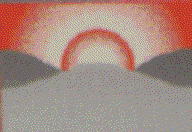Turing Plus
 |
|
| Paradigm | multi-paradigm: object-oriented, procedural |
|---|---|
| Designed by | Ric Holt and James Cordy |
| Developer | Holt Software Associates |
| First appeared | 1982 |
| Typing discipline | static, manifest |
| OS | Microsoft Windows |
| Major implementations | |
| Turing, TPlus, OpenT | |
| Dialects | |
| Object-Oriented Turing, Turing Plus | |
| Influenced by | |
| Euclid, Pascal, SP/k | |
| Paradigm | multi-paradigm: object-oriented, procedural, concurrent |
|---|---|
| Designed by | Ric Holt and James Cordy |
| Developer | Ric Holt and James Cordy |
| First appeared | 1987 |
| Typing discipline | static, manifest |
| Influenced by | |
| Concurrent Euclid, Turing | |
| Influenced | |
| Object-Oriented Turing | |
| Paradigm | multi-paradigm: object-oriented, procedural, concurrent |
|---|---|
| Designed by | Ric Holt |
| Developer | Ric Holt |
| First appeared | 1991 |
| Typing discipline | static, manifest |
| OS | Cross-platform: Sun-4, MIPS, RS-6000 |
| Influenced by | |
| Turing | |
Turing is a Pascal-like programming language developed in 1982 by Ric Holt and James Cordy, then of University of Toronto, Canada. Turing is a descendant of Euclid, Pascal and SP/k that features a clean syntax and precise machine-independent semantics.
Turing 4.1.0 is the latest stable version of Turing. Turing 4.1.1 and Turing 4.1.2 do not allow for stand alone .EXE files to be created and versions before Turing 4.1.0 have outdated syntax and outdated functions.
Named after British computer scientist Alan Turing, Turing is used primarily as a teaching language at the high school and university level. Two other versions exist, Object-Oriented Turing and Turing Plus, a systems programming variant. In September 2001, "Object Oriented Turing" was renamed "Turing" and the original Turing was renamed "Classic Turing". Turing is no longer supported by Holt Software Associates in Toronto. Currently, Microsoft Windows is the only supported platform. Turing is widely used in high schools in Ontario as an introduction to programming.
On November 28, 2007, Turing, which was previously a commercial programming language, became freeware, available to download from the developer's website free of charge for personal, commercial, and educational use.
The makers of Turing, Holt Software Associates, have since ceased operations. It is unclear whether Turing is still in development, but there have been no new releases since November 25, 2007.
Turing is designed to have a very lightweight, readable, intuitive syntax. Here is the entire Hello World! program in Turing with syntax highlighting:
Turing avoids semicolons and braces, using explicit end markers for most language constructs instead, and allows declarations anywhere. Here is a complete program defining and using the traditional recursive function to calculate a factorial.
...
Wikipedia
